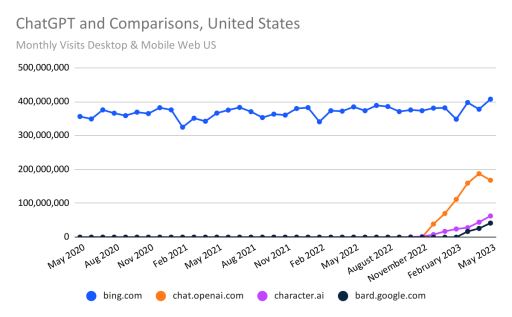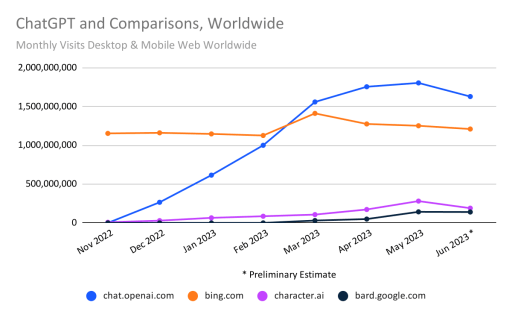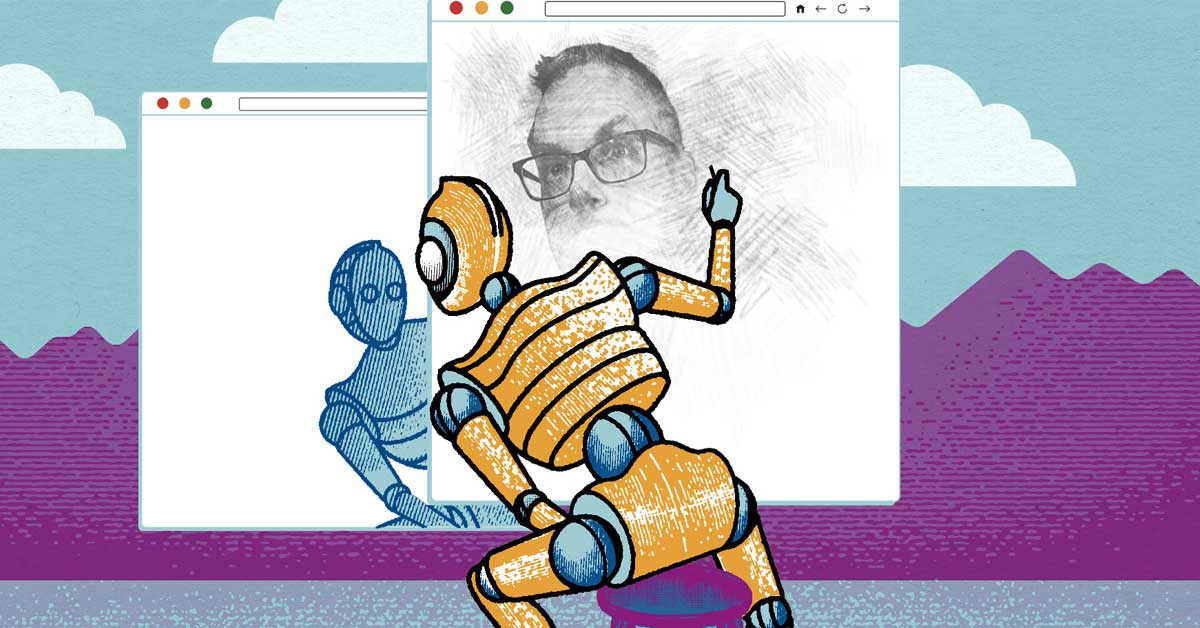Artificial Intelligence (AI) has become an integral part of our lives, influencing everything from our online shopping experiences to the creation of stunning digital masterpieces.
One prominent player in the AI landscape is ChatGPT, an advanced language model developed by OpenAI. However, despite its initial popularity, recent data shows a decline in ChatGPT's performance and user satisfaction.
Despite AI's ever-increasing presence in various domains, ChatGPT has seen a drop in its popularity. OpenAI's ChatGPT website witnessed a notable 10% decrease in traffic compared to the previous month, and the downloads of its iOS app are also on the decline.
This downturn is perplexing given the widespread integration of AI in our daily lives, assisting us in diverse tasks like generating art and supporting online shopping experiences.




A major cause of concern for ChatGPT users has been the output quality of the GPT-4 model, which is accessible through ChatGPT Plus. Users have expressed their dissatisfaction, noting that GPT-4 produces faster responses but with a notable decline in accuracy.
This dip in performance has led to frustration among users who expect high-quality interactions with the chatbot.
The possible reason behind GPT-4's struggles lies in a speculated shift in OpenAI's design ethos. Some experts believe that OpenAI might have employed multiple smaller models trained in specific areas to achieve comparable outcomes at a reduced cost.
GPT4's output has changed recently.
— Peter Yang (@petergyang) May 21, 2023
It generates faster, but the quality seems worse.
Perhaps OpenAI is trying to save costs.
Has anyone else noticed this?
While this theory offers a credible explanation for GPT -4's decline, OpenAI has not officially confirmed this change.
Apart from design changes, another significant factor affecting ChatGPT's performance is 'AI cannibalism.' This concept arises from the fact that large language models, like ChatGPT, collect data from the internet, including content generated by other AI models.

The recent surge in AI-generated content has led to a feedback loop where AI models learn from each other's outputs. As a result, this feedback loop can cause a decline in output coherence and quality, impacting ChatGPT's effectiveness.
The growing challenge of AI cannibalism poses a threat to the future of AI itself. With multiple AI models accessing and learning from one another's work, it becomes difficult for these models to differentiate between 'real' human-created information and AI-generated content.
This difficulty leads to potential issues in AI's ability to generate accurate and coherent responses, hindering the functionality of tools like ChatGPT that rely on human-made materials for learning and content generation.
Sources: techradar.com / businessinsider.com













